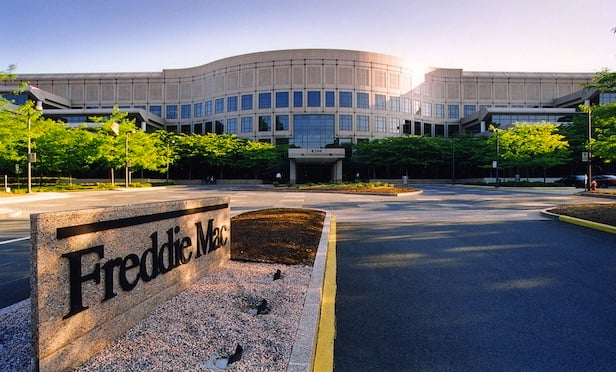McLEAN, VA–Freddie Mac began securitizing the paper from the tax-exempt loan (TEL) program that it launched in 2014 this year. It issued two securitizations and then this week a different variant of the same product came to market: two Multifamily Participation Certificate pass-through securities backed by tax-exempt loans (TEL Multi PCs). Like the TEL ML Certificates that were securitized, the underlying tax-exempt loans in these TEL Multi PCs are made by state or local housing agencies and secured by affordable rental housing.
Also, said David Leopold, Vice President for Affordable Housing Production and Investments at Freddie Mac Multifamily, both models are reflective of Freddie Mac's commitment to developing the best execution for sourcing the cheapest capital.
In that respect they both performed well, he tells GlobeSt.com.
Recommended For You
Want to continue reading?
Become a Free ALM Digital Reader.
Once you are an ALM Digital Member, you’ll receive:
- Breaking commercial real estate news and analysis, on-site and via our newsletters and custom alerts
- Educational webcasts, white papers, and ebooks from industry thought leaders
- Critical coverage of the property casualty insurance and financial advisory markets on our other ALM sites, PropertyCasualty360 and ThinkAdvisor
Already have an account? Sign In Now
*May exclude premium content© 2025 ALM Global, LLC, All Rights Reserved. Request academic re-use from www.copyright.com. All other uses, submit a request to [email protected]. For more information visit Asset & Logo Licensing.









